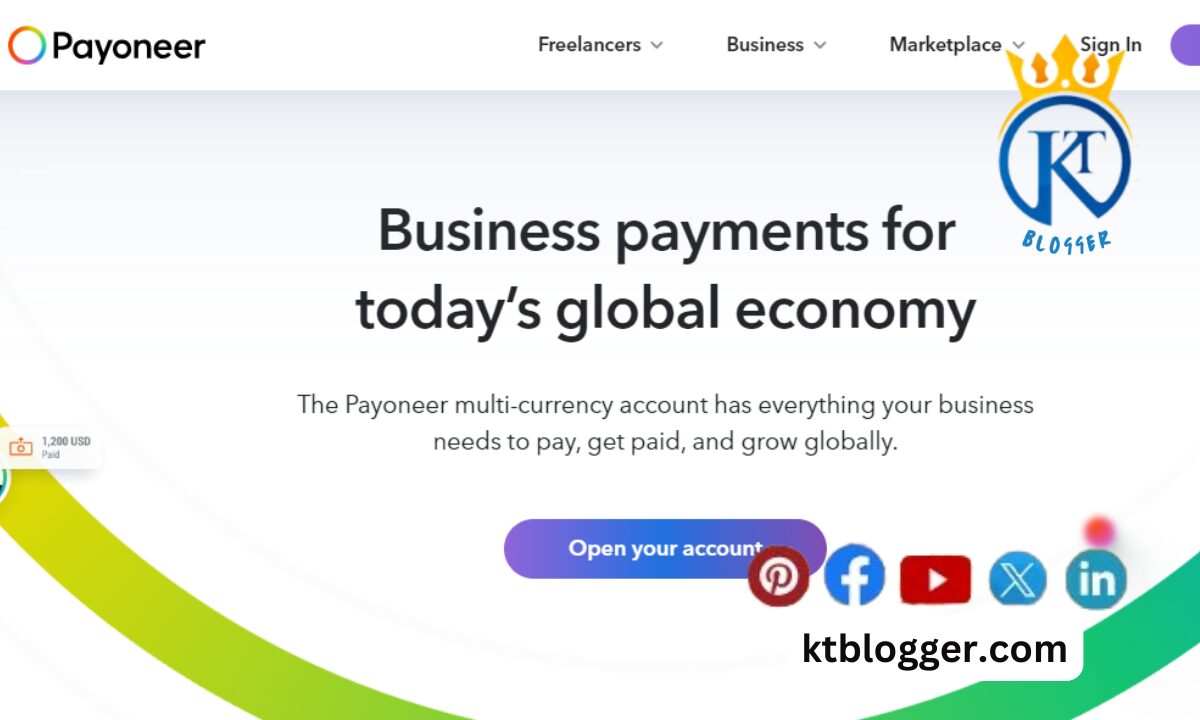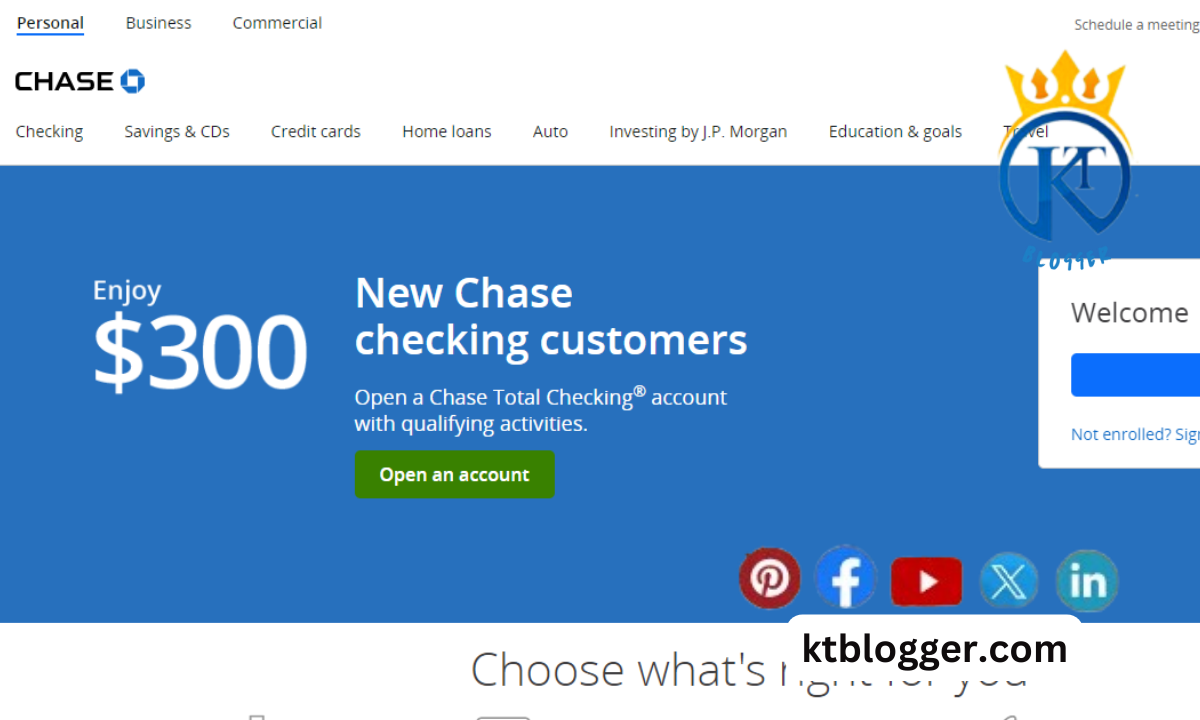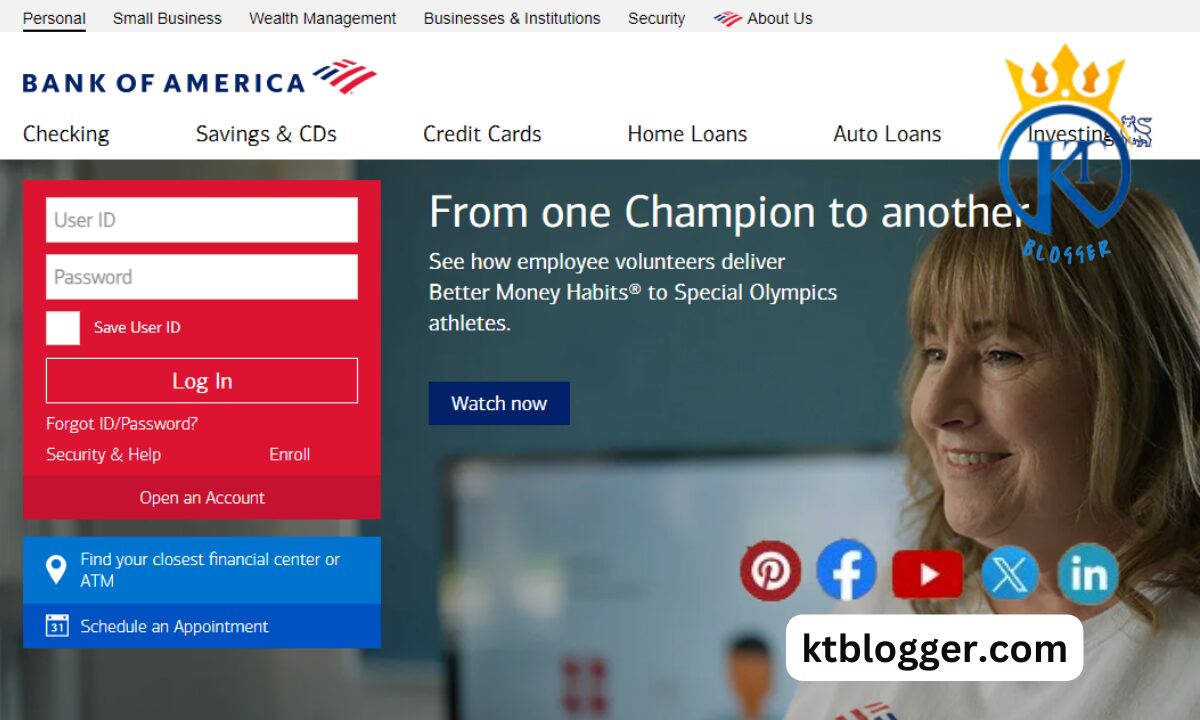Hence, if you’re looking to find the best banks for an ecommerce business where you sell clothes, gadgets, or handmade crafts, you have come to the right place! Here is how you may cut down on managing your money and make it easier.
From the beginning, you need a “business license ” for starters, which is a document issued by the government allowing you to operate a business. Once you have this, the next thing to do is to select a bank.
However, remember that not all banks are created equal; if you are an e-commerce dealer, some are more advantageous than others. To run your business efficiently, it is essential to choose the right bank. Not only do you want competent money management, but also supportive customer care from the bank. Search for banks that have e-commerce provisions.
Effective selling of products online should entail tracking the money spent and telephone support for customers, as well as low costs of services rendered. They must also integrate well with major e-commerce providers and services such as payment processing and order returns.
To help you easily choose the best bank, I’ve prepared a review of some of the banks I consider great for your business.
What Makes a Bank Good For an E-commerce Business?
Now that we’ve established the importance of a business bank account in your company structure, let us analyze what features in the bank would suit your needs. Think about the following factors:

1. Expenses
First comes first, expenses. What one ought to be concerned about is how expensive it is to pay for an account with a particular bank. Concerning traditional banks, we want to avoid paying extensive fees just to maintain our account, especially since we are still beginning. Therefore, seek a bank that charges little or no fees.
2. Availability
Availability is also important. For whatever reason, you want your funds to be accessible whether at home or on the go. This means seeking a bank that has reasonable online and mobile banking options.
3. Tools
Tools are also a priority for small business owners. Everything from mobile deposits to account and payment notifications makes running your business easier than previously.
4. Compatibility
Last but not least, compatibility. Banks report that certain tools can be integrated with third-party tools such as accounting systems or payment gateways that you use. This saves time and helps you to remain organized.
In my research, I have already found several reputable banks. I have identified 8 banks that seem ideal for the needs of an internet-based enterprise. I listed them in terms of integration, cost, accessibility, and features to help you make the right choice.
List of the 8 Best Banks For E-commerce Business
The ideal banks for online businesses understand the requirements of online business owners. They provide targeted solutions, such as a business bank account for e-commerce shops, as well as money management tools. This also includes payment processing, providing small business loans to internet businesses, and the security of online transactions.
Banks that can be added to the list of online businesses include:
- Wise Business
- PayPal
- Payoneer
- Revolut
- Chase
- TIAA
- Bank of America
- Relay
1. Wise Business
The declaration for Wise Business should be our next priority. First and foremost, this is not a conventional checking or savings account. What makes it unique is its ability to accept payments from countless different currencies via an international wire transfer. There is a one-time fee involved, after which major currencies can be exchanged for US dollars, British pounds, euros, Australian dollars, Canadian dollars, and Japanese Yen among others. After receiving funds, if purchased, one can either send or spend the money or even convert it into other currencies if needed.

Wise Business is reported to charge lower fees as compared to other services, Making it convenient for one’s online business. There are no menu packs to select from; you simply pay for what you use.
Let’s break the fees down: You need to send a one-time payment of $31 for local account information. Depending on the currency, fees for every transaction start at 0.43%. However, there are minor fees for currency conversion and some specific transfers, while receiving funds within your Wise account costs nothing.
Pros:
-
Lower fees as compared to banks
-
You have a precise fee meaning you only pay for services that you actually require
-
You can receive payments in several currencies
Cons:
-
It is not a regular savings account and therefore may not offer most conventional banking services
2. PayPal
Let me next elaborate on Paypal. It is an old phenomenon and many companies trust it. With PayPal, you can easily send and receive payments in all regions. It is very popular due to its less complicated usage which eases the management of your money online. It is possible to send invoices through PayPal, allow quick payment of goods in your online shop, and even order a debit card for business purposes.
PayPal offers flexible business plans to accommodate differing needs. Every business, whether small or large, is catered for. In the US, the commission fee ranges around 2.9% plus a currency-based fixed amount whenever sales occur. For sales executed beyond the borders of America, an extra charge is implemented and this stands at 1.50%.
Pros:
-
They have been in the market for a long and hence customers find them reliable
-
Customers can easily send and receive payments across the globe through its website
-
It enables you to invoice, configure checkout, and obtain a business debit card
Cons:
- Fees can be high, especially for international transactions (2.9% + fixed fee, plus an extra 1.50% for international sales)
3. Payoneer
If you are looking for international banking solutions, Payoneer should be your ideal choice as it allows you to click sales from different countries without complications. If you already have a Payoneer MasterCard, you will be able to conduct bulk payments in different currencies.

There is a single plan available with Payoneer for all your needs. The best part is that you don’t have to worry about a monthly subscription as it comes without a charge.
Here’s how the fees work:
-
If you receive money from another Payoneer user in USD, EUR, GBP, AUD, or CAD, there are no fees.
-
If the money comes from a customer or a market, there might even be a fee.
-
Another thing is that there is a fee of 0.5% charge for exchange rate changes.
Pros:
-
Easy and fast fees, there is no permanent fee.
-
The benefits are receiving funds in various currencies and making payments easily.
-
Yes, everyone can apply for a Payoneer Mastercard.
Cons:
-
The fee policy is based on the source of the money.
-
There is also a 0.5% charge when currencies are exchanged.
4. Revolut
Revolut is a bank for people who have online stores – particularly for those who have a Shopify store. It has several functionalities such as multi-currency accounts, transfers of money internationally, and a mobile app that you can use to manage your accounts anywhere.
There are four Revolut plans: Free, Grow, Scale, and Enterprise. Each of them has its additional options such as lower rates and of course, additional support when needed.
The cost of using the devise will vary depending on which plan you choose on Revolut, like the Grow plan, for instance, it’s possible to add $10,000 worth of various currencies because there are no extra charges.
Pros:
-
Handle different currencies
-
Transfer money around the world
-
Record expenditures of money
-
Mobile application to manage finances from anywhere
-
Different plans with respective features.
Cons:
-
Charges differ as per every standard fee plan
-
The free plan has limitations on currency conversions.
5. Chase
Chase is a well-known bank that has customers using it for their everyday banking needs. Chase can be opened with different business checking accounts, to obtain loans, merchant services, or other forms of personal financial assistance. The company offers many locations and ATMs, plus their online and mobile banking is very practical.

The company consists of several account holders using its services at differing scales. Whether you are running a startup or a conglomerate company, Chase will always offer you an ideal account.
Chase offers different fee limits depending on the business checking account you want to apply for. Some accounts are charged a monthly fee provided certain conditions are not met which is very common. Miscellaneous currencies or even transactions exceeding the limit would attract additional charges.
Pros:
-
A bank with many branches and ATM’s as well as a strong online presence
-
Offers checking accounts tailored to your business needs, credit services, and merchant services
-
Open a business account with ease thanks to the easy online banking
Cons:
-
Extra fees for exceeding transaction limits or exchanging currencies, alongside recurring monthly fees (avoidable)
6. TIAA
TIAA is a company that offers various money services geared towards for-profit and non-profit companies. Their range of services includes business checking and savings accounts, cash management, investment options, and financial planning.
TIAA offers a multi-step service mix as they don’t have fixed plans.
Based on different factors and the services chosen, fees with TIAA may vary. This usually involves monthly account maintenance and transaction costs.
Pros:
-
Assists several businesses as well as non-profit organizations
-
Investment advice, management of cash, along with savings accounts and checking are available
Cons:
-
There are no set fees due to the services offered (a monthly fee and a transaction fee are optional)
7. Bank of America
One of the large banks that deal with payment requirements for online businesses is Bank of America. Payment processing, cash management, credit, and QuickBooks integration are some of the services they offer.

There are varied checking accounts for companies depending on their needs and size.
Monthly maintenance fees for the accounts can exist. However, in most instances, it is possible to evade the charge. For some providers, there are additional charges by the country a specific customer seeks to send money.
Pros:
-
Has online account opening with other commercial services
-
Payments, cash management, credits, and QuickBooks sales are done as well
-
Business checking accounts are opened in accordance with the requests of the clients
Cons:
-
Some fees might be charged for international money transfers
-
Exemption on maintenance fees might be granted
8. Relay
The last on the list is Relay. It is for people with businesses that are solely based on the internet. With it, users open accounts with banks that insure up to 250 thousand dollars, provide zero service charges, and allow users to make online payments and these have become part of the services of the important marketers’ business.
A zero plan is typically available for startups as well as Relay Pro a paid plan. Some of the features found in paid plans that attract customers include automatic importation to accounting programs whereby clients are not charged for the services offered through the wire.
While free plans come with some associated fees for transferring cash, the Relay Pro on the other hand renders these services free meaning an online business will save money.
Pros:
- Made for online businesses
- Safe bank accounts with FDIC insurance, no fees for transactions, online bill payments, and works with accounting tools
- Free plan for new businesses and a paid plan with extra features like free wire transfers and automatic importing
Cons:
- The free plan might have small fees for sending money (Relay Pro has no fees for this)
FAQs
Do I Need a Business Bank Account for E-commerce?
Yes, It is helpful to have a different bank account for your online business. Here’s why:
- Better Visibility: Keeping personal finances and business expenses separate makes managing spending and revenue tracking simple.
- Reduced Clutter: A dedicated account for a sole proprietorship or small business greatly simplifies record keeping and accounting.
- Saves Time During Tax Filing: Different business and personal accounts help prevent errors in filing business tax returns.
How Much Does One Have to Pay To Open A Business Account?
Opening an account with a firm providing a business bank account could incur different costs, depending on account type as well as the bank. Typically, to set this up, you will be required to maintain a minimum balance ranging from $25 to $100.
What are the requirements to open a company business account?
If you want to open a business account, you shall have the following:
- ID: A government-issued ID such as a Driver’s license or passport.
- Business Papers: Licenses or business contracts relevant to the company to be set up.
- Tax Number: The Identification requirements for other purposes such as the Internal Revenue Service.
- Owner Info: The details of the business owner’s name and address.
- Business Plan: A few banks might be more specific and require the business and money’s strategy and objectives plan.
Final Verdict
Five of the most recommended banks are highlighted. Each of them provides unique attributes and services that are specially tailored for customers running businesses online. So regardless of how where you are in the growth cycle of your business whether just starting or scaling up there is a bank to assist you.
As for the best business online, I would recommend Wise Business for most of them. It offers a variety of services that are inexpensive, straightforward with fees, as well as numerous currencies. It assists in making the transfer of your funds smoother.
